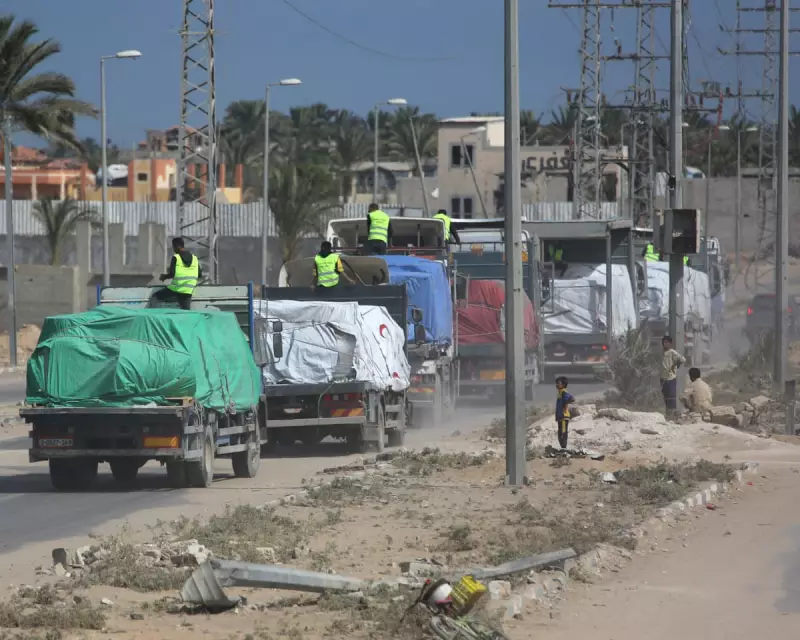
Humanitarian organisations are raising urgent alarms over the rapidly deteriorating situation in Gaza, where life-saving aid remains critically scarce despite mounting international pressure. Multiple UN agencies and relief organisations report that Israeli authorities continue to systematically delay and restrict humanitarian convoys, creating what they describe as a man-made catastrophe.
Systematic Delays Creating Humanitarian Catastrophe
According to recent reports from the ground, essential supplies including food, clean water, and medical equipment are being held up at border crossings for days, with convoys facing what aid workers call "bureaucratic obstruction" and "unnecessary delays." The United Nations Relief and Works Agency (UNRWA) states that the current level of aid reaching Gaza represents only a fraction of what's desperately needed.
Critical Shortages Impacting Most Vulnerable
The consequences of these delays are particularly severe for:
- Children and elderly facing malnutrition and dehydration
- Medical facilities operating without basic supplies and power
- Displaced families living in overcrowded shelters with limited access to sanitation
Aid Workers Describe Dire Conditions
Humanitarian staff on the ground describe the situation as "rapidly approaching a point of no return." Many families are reportedly surviving on less than one meal per day, while hospitals continue to operate in what medical professionals call "catastrophic conditions" with frequent power outages and severe shortages of essential medicines.
The World Food Programme has warned that the nutritional situation, particularly among children, has reached emergency levels, with screening data showing alarming rates of acute malnutrition that could have lifelong consequences for an entire generation.
International Community Calls for Immediate Action
Diplomatic efforts to establish a reliable humanitarian corridor have so far yielded limited results. Multiple international bodies have called for an immediate cessation of restrictions on aid delivery, emphasising that under international humanitarian law, parties to conflict must allow and facilitate rapid and unimpeded passage of humanitarian relief for civilians in need.
As the situation continues to deteriorate, humanitarian agencies stress that without immediate and sustained access, the death toll from preventable diseases and malnutrition could soon surpass that from direct conflict.





